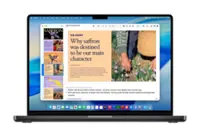Programmed to find the fastest route without consideration of literally anything else, driving apps endanger and infuriate us on a remarkably regular basis. — Image by vecstock on Freepik
On my way to Kennedy International Airport, I grip the wheel tightly, swerving across three lanes of expressway traffic at 50 miles (80.4km) per hour to reach the exit. Minutes later, still shaken from my move, I hear a cheerful, disembodied voice instructing me to re-enter the expressway I had just exited.
I curse at my phone.





